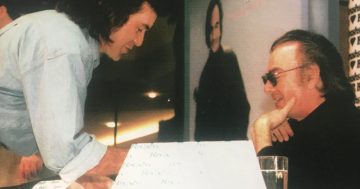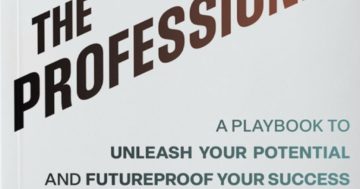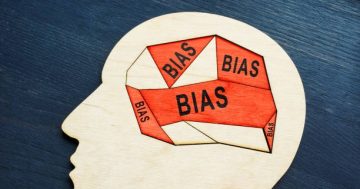Chris Bailey* says an essential part of combatting imposter syndrome is for people to understand that good work within their system has rewarded them with the success they’ve have achieved.
 If you experience imposter syndrome — that feeling where you have no idea why you get to do what you do and that someone is going to find out any second now — you’re not alone.
If you experience imposter syndrome — that feeling where you have no idea why you get to do what you do and that someone is going to find out any second now — you’re not alone.
Even those we hold in the highest regard admit to feeling like imposters.
Take actor Tom Hanks who says: “No matter what we’ve done, there comes a point where you think: ‘How did I get here? When are they going to discover that I am, in fact, a fraud?
Neil Gaiman, author of American Gods, and many more of my favourite books, shared a great story about the syndrome:
“Some years ago, I was lucky enough to be invited to a gathering of great and good people: Artists and scientists, writers and discoverers of things.
“I felt that at any moment they would realise I didn’t qualify to be there, among these people who had really done things.
“I was standing at the back of the hall and started talking to a very nice, polite, elderly gentleman about several things, including our shared first name.
“Then he pointed to the hall of people, and said words to the effect of: ‘I just look at all these people, and I think, what the heck am I doing here? They’ve made amazing things. I just went where I was sent’.
“I said: ‘But you were the first man on the Moon. I think that counts for something’.”
If Tom Hanks, Neil Gaiman, Neil Armstrong, and countless others can feel like imposters, you can, too.
One of the most interesting books I’ve read has been Thinking in Systems, by Donella Meadows.
Though the book is largely theoretical, it’s a great primer on systems thinking.
A system is a series of interconnected parts that accomplish some goal.
Success (by traditional measures) happens when we interact with a system in a way that produces an outcome we desire — like money, status, advancement, or recognition.
For example: A C-Suite executive interacts with an organisational system.
It consists of employees, hierarchies, roles, activities, goals, and customers.
The executive rises through the organisation and performs well given the opportunities and constraints within the system.
An author interacts with the publishing industry — readers, agents, editors, journalists, fellow authors, foreign rights buyers, and booksellers—to release a bestselling book.
Interacting intelligently within a system is a lot easier said than done.
Understanding a system is not enough to guarantee success. After you grasp the intricacies of your industry, you then have to hunker down and do the work.
I’ve experienced imposter syndrome many times.
After I got offered a deal to write a book with Penguin Random House, which became The Productivity Project, I couldn’t help but call myself a fraud.
I didn’t feel I had earned the success I had achieved up to that point — even though I had worked hard within the system I was in.
A similar level (though not quite as high) of negative self-talk happened when I got a second book deal to write Hyperfocus.
Luckily, it was around this time that I encountered Thinking in Systems, which clued me into the idea that maybe — just maybe — I had achieved this success for a reason.
This motivated me to step back, examine the series of events that had led to my success and see that they did indeed make sense.
I realised I had earned these book deals because of the hard work I put in.
Our success, or lack thereof, is a direct result of us interacting with systems.
If you don’t know how you got to where you are, you may be too focused on the unique qualities that have led to your success, and not enough on how your interactions with systems helped get you there.
No one is superhuman, even the artists we put on pedestals.
Understanding the interconnected web of events that led to where you are today will go a long way towards recognising the success you’ve achieved (and earned).
It can even reveal how to keep it up.
*Chris Bailey has written hundreds of articles on the subject of productivity, and is the author of two books: Hyperfocus, and The Productivity Project.
A fuller version of this this article appears at alifeofproductivity.com.











